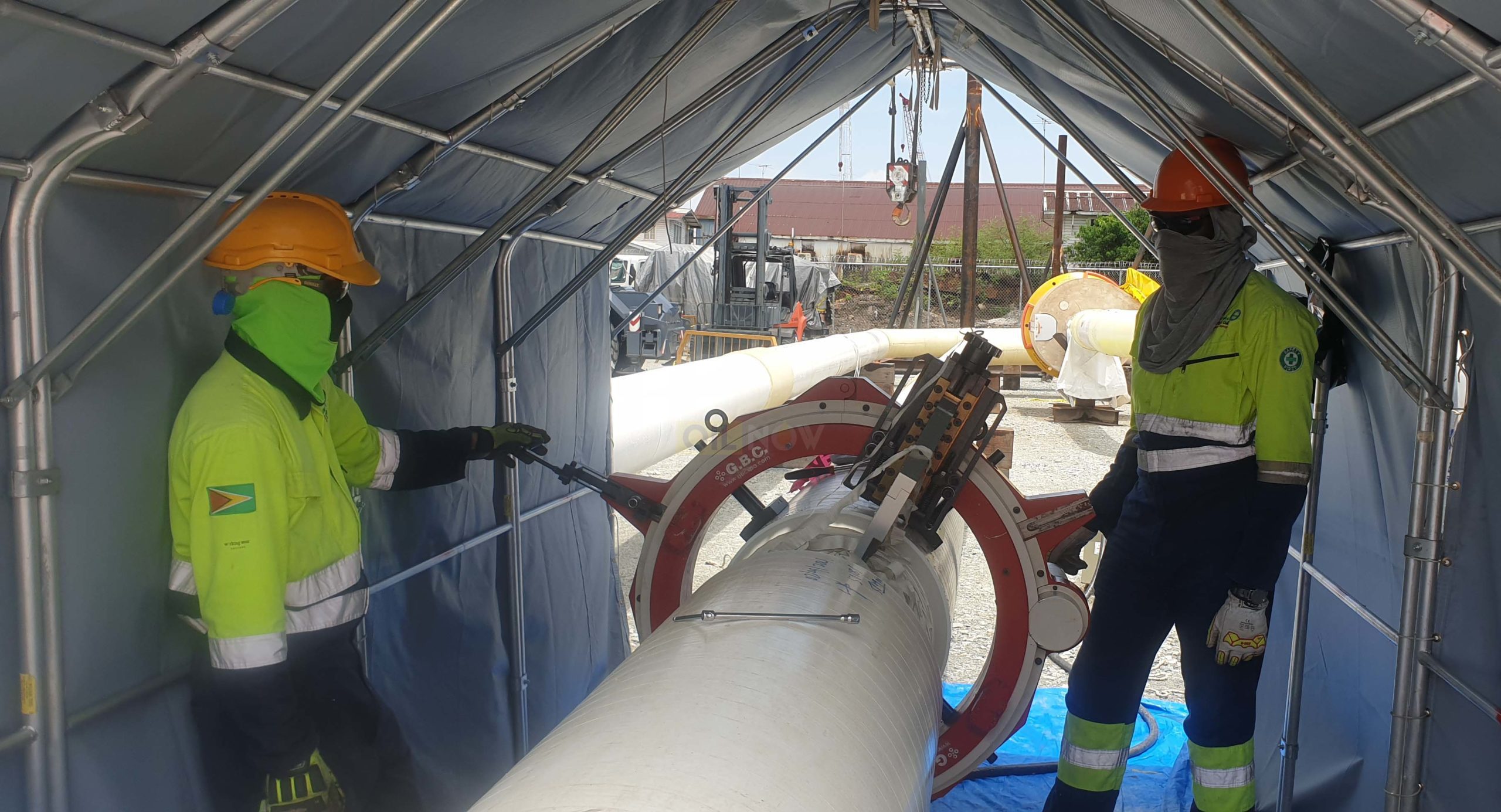As authorities in Guyana forge ahead with the finalization of a local content development framework, the largest oil and gas company operating in the country says it remains committed to building local capacity since it sees this as the right sustainable approach. Key stakeholders, particularly in the business community, are also saying that they remain resolute about the need for legislation to protect local interest and that this must be put in place as soon as possible.
“For ExxonMobil, local content just makes good business sense,” Alistair Routledge, President of ExxonMobil Guyana told OilNOW during an interview on Friday. He pointed out that although a policy is not yet in place, the company sees the value in working with local suppliers so that an increasing number of services can be provided in-country.
“We truly believe it’s the right sustainable approach. It’s the most efficient for the business, and of course ultimately, it’s the right answer for the people of the country to feel that they are part of that development and to ultimately benefit from the development of the resource, not just through the Natural Resources Fund, but also the opportunity to work in the industry,” he said.
Still, stakeholders say that legislation must be put in place to ensure that in the medium to long-term, maximum benefits accrue to Guyanese from the more than 9 billion barrels of oil equivalent resources found so far off the country’s coast.
“Enough time, local content legislation now!! Or Guyanese will become second class citizens in their own country,” declared Timothy Tucker, President of the Georgetown Chamber of Commerce and Industry (GCCI) in an August 30 Facebook post.
Tucker told OilNOW in a webinar that even though the Chamber regards the current revised draft Local Content Policy as a vast improvement over the previous version, it still believes there are some key areas which need to be addressed.
“We need to have a real test of locality. We don’t want (foreign) companies coming and renting citizens. You could probably end up with people just sitting back and because their name is there on the front of the building, you assume it is local content,” he said.
He said Guyana has to make sure that this situation is avoided and that the oil money stays in-country. Tucker stated that this as a critical point to note since it is already happening to some extent in the country.
Along with the tightening of definitions, the Chamber has said the services being proposed in the draft document for Guyanese to have maximum participation, need to be unbundled. In this regard, Tucker noted that categories in Section 7 of the draft document such as marine operations and logistical services which are combined, would be better off separated. Tucker said too that the terminology of some of the services such as welding need to be more specific so that Guyanese can know what exactly is needed in the sector.
Notwithstanding these concerns, as of June 2021, 2,865 Guyanese were supporting ExxonMobil’s overall activities, representing 53% of its total workforce. The Guyanese workforce grew by 38% to 2,865 at the end of June 2021 from 2,070 in June 2020 – and includes 568 women. Also, during the first half of 2021, the company and its contractors spent nearly GY$19 billion with more than 750 Guyanese vendors on goods and services ranging from food stuff to engineering.
Guyana’s Minister of Natural Resources, Vickram Bharrat has assured that by the end of this year the government will commence putting into legislation its Local Content Policy.




